how to start free e-commers website
The 9 Best Free Ecommerce Website Builders

So we thought we’d investigate the best free ecommerce builders out there. In each paragraph below you’ll read about their pros and cons, and our general experience with the platform.
Ready to start selling without paying? Here we go:
Webstarts
Known primarily for their website builder, Webstarts also lets you add an online store for free. It is, in general, a very generous free plan. This is probably why 4M users rely on it for their online presence.
Now, creating the store is also a pretty smooth experience. If you’ve ever used Wix, the feeling is very similar, as you can move items easily on the page. You can also adapt them for mobile screens, as templates aren’t automatically responsive. The interface is a bit dated, but it’s not bad for a free offer.
What we like:
- 1Gb of space: enough for a decent selection of items.
- Sell everything: you can sell digital items and physical goods.
- Generous free plan: sell 10 products and make up to 20 sales a day. More than most small stores will need.
- Unintrusive advert: it’s in the footer and doesn’t look obnoxious.
- Good payment options: Stripe, WePay, Authorize.Net and PayPal are supported.
- SSL is not free: it costs $8 a month and it’s highly recommended for ecommerce.
- No SKU: but you can track your inventory.
- No SEO options: title tags, descriptions & personalized URLs for products and categories are missing.
Jimdo
A website builder with 20+M users and more than 200K online stores to their name, Jimdo is solid, reliable and easy to use. The free plan shows a small ad, and if you decide to go premium later, their plans are very affordable.
For the free ecommerce plan, you get basic features and 5 products. Maybe good for an artisan store or someone who only sells limited edition items. The good thing is that if you ever need to upgrade to a paid plan, they are very affordable starting at $10 per month.
What we like:
- 500MB of storage: enough to have a good amount of text and images to accompany your products.
- SSL included: accept payment safely.
- Intuitive and easy to use: perfect for beginners who don’t want to dwell on the technical details of building a site.
- Physical goods only: can’t sell services or digital downloads.
- Credit card payments only via PayPal: in order to use Stripe you’ll need their BUSINESS package.
Mozello
Not to be mistaken with Mozilla, this small Latvian company isn’t a household name, but they have one feature that big companies don’t: multilingual websites for free.
The same applies with their online store offer. Free deal, multilingual options. You can sell up to 10 products.
Unfortunately, working with their editor isn’t as fun or flexible as we’d like. For instance, you can’t add image galleries to all the pages.
What we like:
- 500MB of storage: good for small stores.
- Multilingual option: you can sell in numerous languages.
- Inventory tracking: good for replenishing stocks.
- Product variant and options available: for example, shoes in different colors, sizes, materials, etc…
- Basic system: your ecommerce will be pretty unsophisticated.
- No SSL: you’ll have to add it yourself.
- Physical goods only: you can’t sell digital products.
- No credit card payments: Stripe only comes with premium plans.
Squareup
Squareup comes from Square, the famous Point of Sale system available for smartphones, desktops and tablets. It is like a portable version of your store that can be used to sell and manage payments everywhere with Internet.
Since they process online payments (for example Weebly uses them), you can also create an account with Square and open a free online store.
It’s not the most obvious solution, but it works! You can sell your items in person, and also on the web. You don’t have to pay monthly fees, but they take 3% of every transaction.
What we like:
- Great P.O.S: obviously, combining your online store with Square is what makes it appealing. You can sell all kinds of things face to face, from services to concert tickets.
- Sell tickets: Square’s system comes with a feature to sell event tickets.
- Inventory tracking: manage your stock easily.
- Optimized for physical store owners: if you don’t have a brick and mortar establishment, maybe not so interesting.
- Poor SEO options: no title tags or customizable URLs, amongst others.
- Limited payment options: PayPal isn’t supported, for instance.
Freewebstore
Freewebstore displays the number of store owners who chose their product on their landing page. At the time of writing, it’s around half a million users. Their motto “eCommerce for everyone” seems to make sense for a lot of people.
It’s certainly not a bad deal as you can sell up to 20 products for free, and SSL is included. The designs are ok, if a bit dated, but they are responsive for mobile phones and tablets.
What we like:
- Free SSL.
- Numerous online payment processors: Stripe, PayPal, Skrill, 2Checkout and more are included.
- No transaction fees.
- Advanced features: import / export products via CSV and abandoned cart, amongst others.
- Dated and complex backend: it’s not exactly intuitive or fun to create the site.
- Physical goods only: can’t sell digital products online.
Strikingly
Strikingly’s mission is to let you “build your brand” and “conquer the world”. Apart from that, there’s not much information about them online, except that their product is free and includes a web store.
The main catch is that you can only sell one product for free. Also, they only let you create single-page layouts. This isn’t bad if you want a minimalist website, but not great for SEO. Let’s see more of their pros and cons below.
What we like:
- Good designs: they are modern and responsive.
- Numerous online payment processors: PayPal, Stripe, and offline payments are accepted.
- Only sell one product: you have to pay to sell more.
- Limited template choice: limited for the websites, and there are even fewer for ecommerces.
- SEO-limitations: mostly due to the one-page template.
Find out more in our Strikingly Review.
MyOnlineStore
A young Dutch provider in the ecommerce scene, MyOnlineStore has a small staff of 24 and around 40 000 stores to their name.
We published our test store without problem, but the backend did mention that it was in the Beta stage at this point. Aside from that, the pros and cons are as follows:
What we like:
- Good designs: modern and responsive.
- Payment options: online and offline are supported. Even Bitcoins!
- Multilingual system: to create your site in your preferred language.
- No SSL included.
- Limited template choice.
- Expensive premium plans.
- Still in Beta stage: maybe MyOnlineStore needs a bit of time to grow.
Ecwid
Something a little different here, as the strangely named Ecwid is actually an ecommerce plugin you can add to any website. It’s a very interesting proposition that has won nearly 1M people over.
The free option lets you sell 10 items, and the plugin is available in 50 languages. As you can read in our complete review, it’s a perfect mix between a dedicated ecommerce solution and a budget online store. Indeed, the premium prices are reasonable if you choose to upgrade from the free option.
What we like:
- Powerful features: even the free option lets you set taxes, manage articles and create coupons, amongst others.
- 20+ payment processors: PayPal, 2Checkout, Authorize.net and many more.
- Intuitive and easy to use: the interface and user experience are top-notch.
- SSL integration.
- Sleek product presentation: carousels, galleries, you get tons of options to display your wares.
- You need an existing website: you need to take that into account for your costs and ease of use.
- SEO could be cleaner: for example, Ecwid adds product IDs to the URLs.
WooCommerce + WordPress with free hosting
You might already know that you can use WordPress for free, and the good news is that their most popular plugin for online stores is also gratis. WooCommerce is a fantastic tool that lets you do everything that big online stores can.
One thing to mention is that WordPress doesn’t come with free hosting, so you might still have to pay a bit. It is possible to find free hosting providers (like 000webhost), but don’t expect the best uptime and speeds from them.
You can read our complete review of WooCommerce here, but the main takeaways are that it’s incredibly powerful, but not exactly a cinch for beginners.
What we like:
- Powerful features: there isn’t much you can’t do with WooCommerce.
- Great for SEO: all the options you could want here too.
- Works well for large stores.
- SSL integration (if your web host allows it).
- Sleek product presentation: carousels, galleries, you get tons of options to display your wares.
- Very technical: WooCommerce isn’t exactly easy to set up.
- Need to use WordPress: and be fairly proficient at it. That also means finding your own hosting provider.
- No support: you only have the forums to trawl for information.
- Can become costly: WordPress in general can be a money pit if you buy extra themes, plugins and developer time.
Overview of the best (free) store builders
| Provider | Ads | Product limit | SSL | Product types |
|---|---|---|---|---|
| Webstarts | Logo in footer | 10 products | Not included | Digital & physical |
| Jimdo (Review) | Logo in footer | 5 products | Included | Physical only |
| Mozello | Link in footer | 10 products | Not included | Physical only |
| Squareup | Logo and link in the footer | Unlimited | Included | Physical only |
| Freewebstore | Overlay bar in the header | 20 products | Included | Physical only |
| Strikingly | Overlay in footer | 1 product | Not included | Physical only |
| MyOnlineStore | Link in the footer | 25 products | Included | Physical only |
| Ecwid (Review) | No ad | 10 products | Not included, but you can integrate it | Physical and digital |
| WooCommerce (Review) | Removable logo in footer | Unlimited | Not included, but you can integrate it | Physical and digital |
What will I miss with a free online store?
Selling online can be difficult if people don’t trust your business, and the main problem here is with the domain name. Most free online stores won’t get you a .com or a .net. These always cost money. Instead, you’ll piggyback on the provider’s domain, so your store URL will be something like: www.yourname.freecommerceplatform.com.Providers who offer free online stores also make up some of the cost by selling advertising space. Most of the time it’s just for their own platforms, but sometimes it’s for other services. In any case, adverts don’t look super professional.
Finally, you’re pretty likely to miss out on features. Most providers will reserve their best templates or options for paying users only. Likewise, SSL, or secure encryption is a must-have for online stores, and you won’t always get it for free.
Why are they offering free stores?
Good question. Most of the time, the platforms operate on a freemium model. Your basic site is free, but when you want to expand (add more products for example,) you have to pay. And you’re more likely to choose the easy options of paying a bit more with the same provider than moving your entire store to a cheaper host.This is why we recommend you take into account the premium plans as well as the free ones. It might be highly beneficial in the long run. If you are serious about ecommerce, we’d suggest you to check our store builder comparison tool to find the best solution for your project.
Is my SEO going to be OK with a free ecommerce builder?
In all likelihood, your SEO will suffer. Non-custom domain names are a big problem with search engines like Google.We can’t guarantee that you won’t rank with a free solution for a very specific niche, but if you’re set on acquiring customers via Google, you’re better off paying for a custom domain at least.
Free website builders to create online stores: conclusion
Free online stores should be considered for test runs. Maybe your sales will take off, and you’ll need to move to a better provider. Maybe you’ll need to add more products and expand.In any case, they are not recommended for serious, long term online stores. Weebly, Shopify and BigCommerce are much better solutions for ambitions ecommerce owners.
Finally, also remember that just because you build it doesn’t mean they’ll come. If you are going to rely on organic search results to bring in customers, a paying online store solution with better SEO options is a must.
The 9 Best Free Ecommerce Website Builders
|
Oct. 9, 2018
|

So we thought we’d investigate the best free ecommerce builders out there. In each paragraph below you’ll read about their pros and cons, and our general experience with the platform.
Ready to start selling without paying? Here we go:
Webstarts
Known primarily for their website builder, Webstarts also lets you add an online store for free. It is, in general, a very generous free plan. This is probably why 4M users rely on it for their online presence.
Now, creating the store is also a pretty smooth experience. If you’ve ever used Wix, the feeling is very similar, as you can move items easily on the page. You can also adapt them for mobile screens, as templates aren’t automatically responsive. The interface is a bit dated, but it’s not bad for a free offer.
What we like:
- 1Gb of space: enough for a decent selection of items.
- Sell everything: you can sell digital items and physical goods.
- Generous free plan: sell 10 products and make up to 20 sales a day. More than most small stores will need.
- Unintrusive advert: it’s in the footer and doesn’t look obnoxious.
- Good payment options: Stripe, WePay, Authorize.Net and PayPal are supported.
- SSL is not free: it costs $8 a month and it’s highly recommended for ecommerce.
- No SKU: but you can track your inventory.
- No SEO options: title tags, descriptions & personalized URLs for products and categories are missing.
Jimdo
A website builder with 20+M users and more than 200K online stores to their name, Jimdo is solid, reliable and easy to use. The free plan shows a small ad, and if you decide to go premium later, their plans are very affordable.
For the free ecommerce plan, you get basic features and 5 products. Maybe good for an artisan store or someone who only sells limited edition items. The good thing is that if you ever need to upgrade to a paid plan, they are very affordable starting at $10 per month.
What we like:
- 500MB of storage: enough to have a good amount of text and images to accompany your products.
- SSL included: accept payment safely.
- Intuitive and easy to use: perfect for beginners who don’t want to dwell on the technical details of building a site.
- Physical goods only: can’t sell services or digital downloads.
- Credit card payments only via PayPal: in order to use Stripe you’ll need their BUSINESS package.
Mozello
Not to be mistaken with Mozilla, this small Latvian company isn’t a household name, but they have one feature that big companies don’t: multilingual websites for free.
The same applies with their online store offer. Free deal, multilingual options. You can sell up to 10 products.
Unfortunately, working with their editor isn’t as fun or flexible as we’d like. For instance, you can’t add image galleries to all the pages.
What we like:
- 500MB of storage: good for small stores.
- Multilingual option: you can sell in numerous languages.
- Inventory tracking: good for replenishing stocks.
- Product variant and options available: for example, shoes in different colors, sizes, materials, etc…
- Basic system: your ecommerce will be pretty unsophisticated.
- No SSL: you’ll have to add it yourself.
- Physical goods only: you can’t sell digital products.
- No credit card payments: Stripe only comes with premium plans.
Squareup
Squareup comes from Square, the famous Point of Sale system available for smartphones, desktops and tablets. It is like a portable version of your store that can be used to sell and manage payments everywhere with Internet.
Since they process online payments (for example Weebly uses them), you can also create an account with Square and open a free online store.
It’s not the most obvious solution, but it works! You can sell your items in person, and also on the web. You don’t have to pay monthly fees, but they take 3% of every transaction.
What we like:
- Great P.O.S: obviously, combining your online store with Square is what makes it appealing. You can sell all kinds of things face to face, from services to concert tickets.
- Sell tickets: Square’s system comes with a feature to sell event tickets.
- Inventory tracking: manage your stock easily.
- Optimized for physical store owners: if you don’t have a brick and mortar establishment, maybe not so interesting.
- Poor SEO options: no title tags or customizable URLs, amongst others.
- Limited payment options: PayPal isn’t supported, for instance.
Freewebstore
Freewebstore displays the number of store owners who chose their product on their landing page. At the time of writing, it’s around half a million users. Their motto “eCommerce for everyone” seems to make sense for a lot of people.
It’s certainly not a bad deal as you can sell up to 20 products for free, and SSL is included. The designs are ok, if a bit dated, but they are responsive for mobile phones and tablets.
What we like:
- Free SSL.
- Numerous online payment processors: Stripe, PayPal, Skrill, 2Checkout and more are included.
- No transaction fees.
- Advanced features: import / export products via CSV and abandoned cart, amongst others.
- Dated and complex backend: it’s not exactly intuitive or fun to create the site.
- Physical goods only: can’t sell digital products online.
Strikingly
Strikingly’s mission is to let you “build your brand” and “conquer the world”. Apart from that, there’s not much information about them online, except that their product is free and includes a web store.
The main catch is that you can only sell one product for free. Also, they only let you create single-page layouts. This isn’t bad if you want a minimalist website, but not great for SEO. Let’s see more of their pros and cons below.
What we like:
- Good designs: they are modern and responsive.
- Numerous online payment processors: PayPal, Stripe, and offline payments are accepted.
- Only sell one product: you have to pay to sell more.
- Limited template choice: limited for the websites, and there are even fewer for ecommerces.
- SEO-limitations: mostly due to the one-page template.
Find out more in our Strikingly Review.
MyOnlineStore
A young Dutch provider in the ecommerce scene, MyOnlineStore has a small staff of 24 and around 40 000 stores to their name.
We published our test store without problem, but the backend did mention that it was in the Beta stage at this point. Aside from that, the pros and cons are as follows:
What we like:
- Good designs: modern and responsive.
- Payment options: online and offline are supported. Even Bitcoins!
- Multilingual system: to create your site in your preferred language.
- No SSL included.
- Limited template choice.
- Expensive premium plans.
- Still in Beta stage: maybe MyOnlineStore needs a bit of time to grow.
Ecwid
Something a little different here, as the strangely named Ecwid is actually an ecommerce plugin you can add to any website. It’s a very interesting proposition that has won nearly 1M people over.
The free option lets you sell 10 items, and the plugin is available in 50 languages. As you can read in our complete review, it’s a perfect mix between a dedicated ecommerce solution and a budget online store. Indeed, the premium prices are reasonable if you choose to upgrade from the free option.
What we like:
- Powerful features: even the free option lets you set taxes, manage articles and create coupons, amongst others.
- 20+ payment processors: PayPal, 2Checkout, Authorize.net and many more.
- Intuitive and easy to use: the interface and user experience are top-notch.
- SSL integration.
- Sleek product presentation: carousels, galleries, you get tons of options to display your wares.
- You need an existing website: you need to take that into account for your costs and ease of use.
- SEO could be cleaner: for example, Ecwid adds product IDs to the URLs.
WooCommerce + WordPress with free hosting
You might already know that you can use WordPress for free, and the good news is that their most popular plugin for online stores is also gratis. WooCommerce is a fantastic tool that lets you do everything that big online stores can.
One thing to mention is that WordPress doesn’t come with free hosting, so you might still have to pay a bit. It is possible to find free hosting providers (like 000webhost), but don’t expect the best uptime and speeds from them.
You can read our complete review of WooCommerce here, but the main takeaways are that it’s incredibly powerful, but not exactly a cinch for beginners.
What we like:
- Powerful features: there isn’t much you can’t do with WooCommerce.
- Great for SEO: all the options you could want here too.
- Works well for large stores.
- SSL integration (if your web host allows it).
- Sleek product presentation: carousels, galleries, you get tons of options to display your wares.
- Very technical: WooCommerce isn’t exactly easy to set up.
- Need to use WordPress: and be fairly proficient at it. That also means finding your own hosting provider.
- No support: you only have the forums to trawl for information.
- Can become costly: WordPress in general can be a money pit if you buy extra themes, plugins and developer time.
Overview of the best (free) store builders
| Provider | Ads | Product limit | SSL | Product types |
|---|---|---|---|---|
| Webstarts | Logo in footer | 10 products | Not included | Digital & physical |
| Jimdo (Review) | Logo in footer | 5 products | Included | Physical only |
| Mozello | Link in footer | 10 products | Not included | Physical only |
| Squareup | Logo and link in the footer | Unlimited | Included | Physical only |
| Freewebstore | Overlay bar in the header | 20 products | Included | Physical only |
| Strikingly | Overlay in footer | 1 product | Not included | Physical only |
| MyOnlineStore | Link in the footer | 25 products | Included | Physical only |
| Ecwid (Review) | No ad | 10 products | Not included, but you can integrate it | Physical and digital |
| WooCommerce (Review) | Removable logo in footer | Unlimited | Not included, but you can integrate it | Physical and digital |
What will I miss with a free online store?
Selling online can be difficult if people don’t trust your business, and the main problem here is with the domain name. Most free online stores won’t get you a .com or a .net. These always cost money. Instead, you’ll piggyback on the provider’s domain, so your store URL will be something like: www.yourname.freecommerceplatform.com.Providers who offer free online stores also make up some of the cost by selling advertising space. Most of the time it’s just for their own platforms, but sometimes it’s for other services. In any case, adverts don’t look super professional.
Finally, you’re pretty likely to miss out on features. Most providers will reserve their best templates or options for paying users only. Likewise, SSL, or secure encryption is a must-have for online stores, and you won’t always get it for free.
Why are they offering free stores?
Good question. Most of the time, the platforms operate on a freemium model. Your basic site is free, but when you want to expand (add more products for example,) you have to pay. And you’re more likely to choose the easy options of paying a bit more with the same provider than moving your entire store to a cheaper host.This is why we recommend you take into account the premium plans as well as the free ones. It might be highly beneficial in the long run. If you are serious about ecommerce, we’d suggest you to check our store builder comparison tool to find the best solution for your project.
Is my SEO going to be OK with a free ecommerce builder?
In all likelihood, your SEO will suffer. Non-custom domain names are a big problem with search engines like Google.We can’t guarantee that you won’t rank with a free solution for a very specific niche, but if you’re set on acquiring customers via Google, you’re better off paying for a custom domain at least.
Free website builders to create online stores: conclusion
Free online stores should be considered for test runs. Maybe your sales will take off, and you’ll need to move to a better provider. Maybe you’ll need to add more products and expand.In any case, they are not recommended for serious, long term online stores. Weebly, Shopify and BigCommerce are much better solutions for ambitions ecommerce owners.
Finally, also remember that just because you build it doesn’t mean they’ll come. If you are going to rely on organic search results to bring in customers, a paying online store solution with better SEO options is a must.
6 Best Free Ecommerce Platforms in 2019: Save While Selling Online
Last updated on April 29, 2019
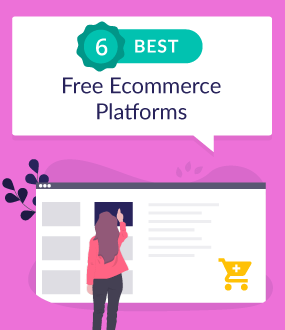 We’re here to show you the best free ecommerce platforms, helping you decide which one is best for you.
We’re here to show you the best free ecommerce platforms, helping you decide which one is best for you.For businesses, being able to sell online is more important than ever. Why? Well, for one thing, the growth of digital sales has meant that fewer people are shopping in actual shops.
In 2017, approximately 1.66 billion people bought stuff online. Staggering numbers, right? Well, an ecommerce platform lets you tap into this internet trend. Essentially, they allow you to build an online store and sell products easily, without knowing how to code.
However, we know running a business is expensive. You may not have a big enough budget – or any budget at all – to build an online store. Or, like most people, you just don’t have the time to search for the best brands.
Well, we’ve done the research for you and found the best free ecommerce platforms, saving you time – and most importantly for your business, money.
Before we start, though, let’s go over the basics. When it comes to choosing an ecommerce platform, there are two categories – those that offer free plans, and those which limit you to a free trial.
Free plans will let you build a website and sell your goods for absolutely nothing. However, you’ll tend to find their sales tools are really restricted.
On the other hand, most platforms offer a free trial where you can try before you buy. Free trials mean you can test all the premium benefits for free (no surprises there), but only for a limited time. Take note – if you take a shine to the platform, once your time runs out, you’ll have to pay to keep using it.
Using our research, we’ve listed the best free ecommerce platforms below:
- Big Cartel (Free Plan)
- Wix (Free to build, not sell)
- Shopify (Free Trial)
- BigCommerce (Free Trial)
Also, from our research, we’ve analyzed and compared each builder’s features and pricing plans – so you’ll have a clear idea on what you’ll get for your money.
Best Free Ecommerce Platforms: Overview
With
so many options out there, we know it’s always tricky to make a
decision. That’s why we’ve done our research, and asked everyday folk to
test each website builder and score them. Read more about our testing methods here.
To make things easier for you, we’ve picked out 6 of the best free ecommerce platforms, which are as follows:
To make things easier for you, we’ve picked out 6 of the best free ecommerce platforms, which are as follows:
- Big Cartel – best for small businesses looking to remain small
- Wix – best for creative control
- Shopify – best all around ecommerce platform
- BigCommerce – best for ambitious businesses looking to scale
- Squarespace – best for design
- Volusion – best for data lovers
| Ecommerce Platform | Free Plan or Free Trial | Product Limit | Product Type | Payment Gateways | Transaction Fee |
|---|---|---|---|---|---|
| Big Cartel | Free Plan | 5 | Physical | PayPal, Stripe, Square | 0% |
| Shopify | Free Trial | Unlimited | Physical & Digital | PayPal, Stripe, Amazon, Apple Pay | 0% (Only when using Shopify Payments) |
| Wix | Free Trial | Unlimited | Physical & Digital | PayPal, Stripe, Square | 0% |
| BigCommerce | Free Trial | Unlimited | Physical & Digital | PayPal, Stripe, Square, Amazon, Apple Pay | 0% |
| Squarespace | Free Trial | Unlimited | Physical & Digital | PayPal, Stripe, Apple Pay | 0% |
| Volusion | Free Trial | Unlimited | Physical | PayPal, Stripe, Amazon, Apple Pay | 0% |
#1 Big Cartel
Best for small businesses looking to stay small
Pros:
- Only platform that allows you to sell for free
- Helpful prompts when building site
- Perfect for artistic products
- Features lack depth and quality
- Poor themes
- Hardest platform to use for building a website

However – and it should go without saying – with no cost comes fewer features.
Firstly, on the free plan, you’re only able to list and sell up to five different products on your site. You will also need third party apps for selling digital items, and you’ll have the sub domain ‘.bigcartel’ after your URL – which doesn’t look too professional.
Want more from Big Cartel, but worried about costs? You shouldn’t be – Big Cartel averaged as the most affordable ecommerce platform in our testing.
The Big Cartel paid plans are as follows:
So, if you’re looking to sell more than just a few products, you’ll likely need to upgrade.
Big Cartel is best for… small businesses that are happy to stay small.
Firstly, on the free plan, you’re only able to list and sell up to five different products on your site. You will also need third party apps for selling digital items, and you’ll have the sub domain ‘.bigcartel’ after your URL – which doesn’t look too professional.
Want more from Big Cartel, but worried about costs? You shouldn’t be – Big Cartel averaged as the most affordable ecommerce platform in our testing.
The Big Cartel paid plans are as follows:
- Personal ($9.99 p/m)
- Diamond ($19.99 p/m)
- Titanium ($29.99 p/m)
So, if you’re looking to sell more than just a few products, you’ll likely need to upgrade.
Big Cartel is best for… small businesses that are happy to stay small.
#2 Shopify
Best all-around ecommerce platform
Pros:
Best of all, it offers a 14-day free trial. During this time, you have access to Shopify’s world class sales tools, at no cost at all.
Afterwards, if you love Shopify – and we certainly did – you’ll need to upgrade. After all, this is where you can really see the long term effects of its superb business tools. Better yet, our ‘features vs pricing’ test revealed Shopify offers excellent value for money.
- Best all-round ecommerce builder
- Brilliant inventory system
- Sell across all social media channels
- Monthly costs add up with apps
- Transaction fees for other payment gateways
- Need to reformat site when switching themes
Best of all, it offers a 14-day free trial. During this time, you have access to Shopify’s world class sales tools, at no cost at all.
Afterwards, if you love Shopify – and we certainly did – you’ll need to upgrade. After all, this is where you can really see the long term effects of its superb business tools. Better yet, our ‘features vs pricing’ test revealed Shopify offers excellent value for money.
The Basic plan covers everything you need for a successful online store, at a cost of just $29 per month.
It lets you sell unlimited products, throw in loads of useful apps, and
sell across 10 different channels, all for just six dollars a week.
What’s more, you can save even more by signing up to a whole year. This reduces the monthly cost to just $26.10 – quite the bargain when considering it’s the best ecommerce platform around.
Shopify is best for… any business looking to scale quickly and easily.
What’s more, you can save even more by signing up to a whole year. This reduces the monthly cost to just $26.10 – quite the bargain when considering it’s the best ecommerce platform around.
Shopify is best for… any business looking to scale quickly and easily.
#3 Wix
Best for creative freedom
Pros:
With Wix, you can build a stunning online store using its free plan, without time limits. On this plan, you can enjoy its easy drag and drop feature, choose from over 500 templates, and have access to the excellent Wix Help Center.
- Mobile editor
- Add product videos
- Sell supplementary products
- Cannot sell across multiple channels
- No abandoned cart recovery
- Poor inventory system
With Wix, you can build a stunning online store using its free plan, without time limits. On this plan, you can enjoy its easy drag and drop feature, choose from over 500 templates, and have access to the excellent Wix Help Center.
So
you’ve built your store and are now ready to sell. While the free plan
lets you design to your heart’s content, you’ll need to spend money to
earn money. Don’t panic, though – Wix’s paid plans start from just $16 a month.
Better still, if you sign up for two years and pay in full, the Basic Plan comes down to just $15 per month. Just think about that – you can sell your products on a professional looking website for the same cost as a monthly takeout pizza.
On this plan, you get loads of excellent features. These include unlimited bandwidth, a free custom domain name (removing the ‘.wix’ subdomain), and apps like Ecwid giving you the ecommerce power to rival Shopify and BigCommerce.
Wix is best for… users looking for creative control
Better still, if you sign up for two years and pay in full, the Basic Plan comes down to just $15 per month. Just think about that – you can sell your products on a professional looking website for the same cost as a monthly takeout pizza.
On this plan, you get loads of excellent features. These include unlimited bandwidth, a free custom domain name (removing the ‘.wix’ subdomain), and apps like Ecwid giving you the ecommerce power to rival Shopify and BigCommerce.
Wix is best for… users looking for creative control
#4 BigCommerce
Best for scaling businesses
Pros:
It also offers one of the longest free trial periods, at 15 days, during which you can test all its brilliant features. After this, you’ll need to upgrade. You can even request a demo to see how BigCommerce can help your online store.
- Sell across Facebook and Instagram
- Fantastic SEO tools
- Most inbuilt features
- Editing interface is confusing
- No mobile app
- Uses complex terminology
It also offers one of the longest free trial periods, at 15 days, during which you can test all its brilliant features. After this, you’ll need to upgrade. You can even request a demo to see how BigCommerce can help your online store.
After your trial, you can continue selling with BigCommerce from $29.95 per month (billed annually). You can even save 10% when you pay for the year upfront.
Why should you bother? It simply comes down to what you get. On all its paid plans, you can sell unlimited products across multiple channels like Facebook, eBay, and Amazon, create coupons, get 24/7 support, and more. These features will really help your business flourish.
BigCommerce is best for… business owners looking to scale massively
Why should you bother? It simply comes down to what you get. On all its paid plans, you can sell unlimited products across multiple channels like Facebook, eBay, and Amazon, create coupons, get 24/7 support, and more. These features will really help your business flourish.
BigCommerce is best for… business owners looking to scale massively
#5 Squarespace
Best for design
Pros:
- In-depth features
- Best design of ecommerce builders
- Great inventory system
- Lacks payment methods
- No app store
- Hardest non-ecommerce-specific builder to use
Like Wix, Squarespace is a non ecommerce-specific website builder. So, as you’d expect, the ecommerce price plans are more than affordable. Yes, there is a 14-day Free Trial, but you can sell with Squarespace for as little as $18 per month afterwards. This reduces to just $16.20/month if you use our exclusive Squarespace discount code.
Squarespace is, on average, cheaper than Shopify and BigCommerce, but it still provides really strong ecommerce tools. You can sell unlimited items, upload products in bulk, view revenue reports, and receive direct emails when stock is low.
Couple that with the sensational themes you can use, and Squarespace really looks like an affordable – and attractive – option for your online store.
Squarespace is best for… users with an eye for design
Squarespace is, on average, cheaper than Shopify and BigCommerce, but it still provides really strong ecommerce tools. You can sell unlimited items, upload products in bulk, view revenue reports, and receive direct emails when stock is low.
Couple that with the sensational themes you can use, and Squarespace really looks like an affordable – and attractive – option for your online store.
Squarespace is best for… users with an eye for design
#6 Volusion
Best for data lovers
Pros:
- Lots of payment methods
- Great analytics tools
- Mobile app
- Cannot sell digital products
- No blogging function
- SSL certificates cost extra
As
we said, Volusion prides itself on consumer analysis. For example, you
can view what customers are searching for on Google. During your trial,
you also benefit from zero transaction fees, ‘suggest products’ for
shoppers to add to their baskets, and throw in loads of third party
apps.
Like every other free trial, after the 14 days, you’ll need to pick a paid plan. Volusion’s cheapest option costs just $15 per month. With this plan, you have access to all the great inbuilt features we mentioned, but you can only sell up to 100 products.
However, with all Volusion plans, you’ll need to purchase SSL (fraud protection) certificates separately. These cost $89-99, and come as standard with other platforms.
So if you have grander ambitions, you should probably think about a grander plan. We recommend the Professional Plan, where you can sell up to 5,000 products at a reasonable $75 per month.
Volusion is best for… data driven business owners
Like every other free trial, after the 14 days, you’ll need to pick a paid plan. Volusion’s cheapest option costs just $15 per month. With this plan, you have access to all the great inbuilt features we mentioned, but you can only sell up to 100 products.
However, with all Volusion plans, you’ll need to purchase SSL (fraud protection) certificates separately. These cost $89-99, and come as standard with other platforms.
So if you have grander ambitions, you should probably think about a grander plan. We recommend the Professional Plan, where you can sell up to 5,000 products at a reasonable $75 per month.
Volusion is best for… data driven business owners
What do you get with an ecommerce paid plan?
Unlocking
extra features is key for a successful online store. And, with the
website builders around today, it’s cheaper than ever to do so. Remember
– Volusion’s plans start from just $15 per month, while Big Cartel’s
start from a mere $9.99 per month.
In short, upgrading to a paid plan will upgrade your business. How is that so? Well, like any subscription, if you pay more, you get more. And we’ve listed below five of the best features you can get on a paid plan…
In short, upgrading to a paid plan will upgrade your business. How is that so? Well, like any subscription, if you pay more, you get more. And we’ve listed below five of the best features you can get on a paid plan…
- No ads – makes your site look more professional
- Better sales tools – features like abandoned cart recovery will bring more money in
- Sell more products – gives customers more choice
- Get better support – lets you fix issues more easily, minimizing profit loss
- Increase payment methods – lets you sell to more people
Best free ecommerce platforms: The verdict
When
it comes to building an online store, you have two options. You can
choose a free plan like on Big Cartel – where you don’t pay a thing to
sell online – or pick a paid plan like on Shopify or BigCommerce.
Deciding on a platform really depends on two simple things: your budget and your needs. How much are you willing to spend on upgrading your store, and what features do you require to grow?
The Best Free Ecommerce Platforms are:
Firstly, with Wix, you can only build your store for free. In other words, to actually make money, you’ll need to spend some.
Secondly, on Big Cartel’s free plan, you can only sell five products. This isn’t really feasible for businesses looking to scale; If this is your aim, you’re better off trying BigCommerce or Shopify using their free trials.
So why should you think about upgrading? Because, for just a few extra dollars per month, you’ll have access to a wide range of features. The most important include more sales tools, better customer support, and the ability to actually sell more products.
Overall, we recommend signing up to a free ecommerce plan today – or testing a free trial – to really get the most out of selling your products online.
Deciding on a platform really depends on two simple things: your budget and your needs. How much are you willing to spend on upgrading your store, and what features do you require to grow?
The Best Free Ecommerce Platforms are:
- Big Cartel (Free Plan)
- Wix (Free to build, not sell)
- Shopify (Free Trial)
- BigCommerce (Free Trial)
- Squarespace (Free Trial)
- Volusion (Free Trial)
Firstly, with Wix, you can only build your store for free. In other words, to actually make money, you’ll need to spend some.
Secondly, on Big Cartel’s free plan, you can only sell five products. This isn’t really feasible for businesses looking to scale; If this is your aim, you’re better off trying BigCommerce or Shopify using their free trials.
So why should you think about upgrading? Because, for just a few extra dollars per month, you’ll have access to a wide range of features. The most important include more sales tools, better customer support, and the ability to actually sell more products.
Overall, we recommend signing up to a free ecommerce plan today – or testing a free trial – to really get the most out of selling your products online.




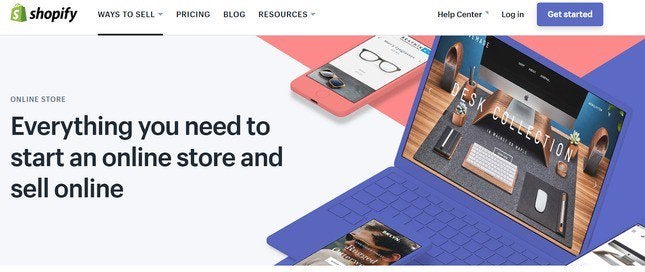
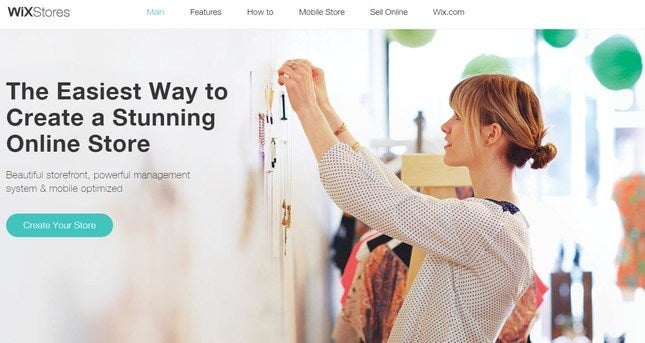
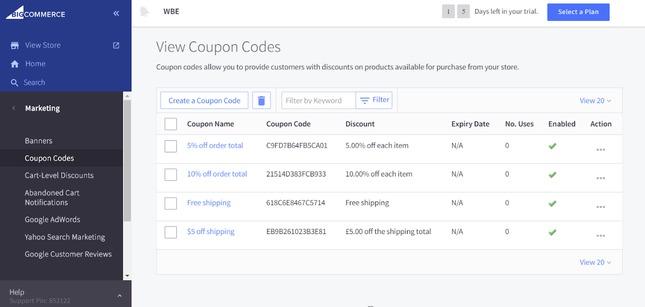
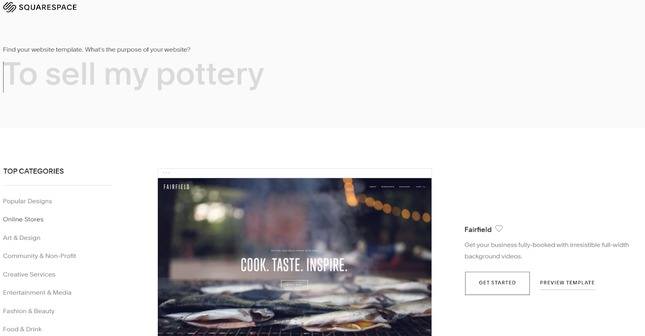
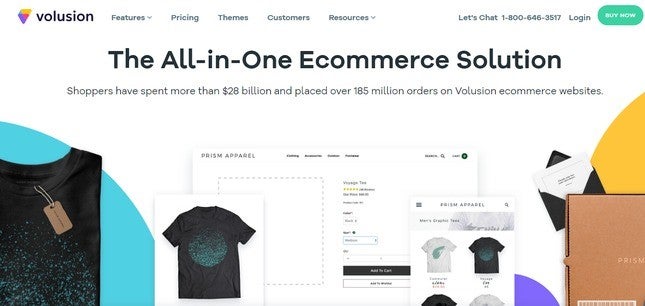
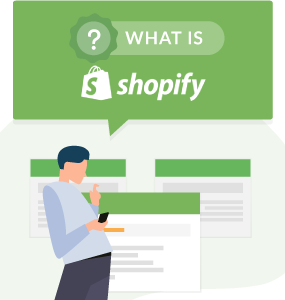

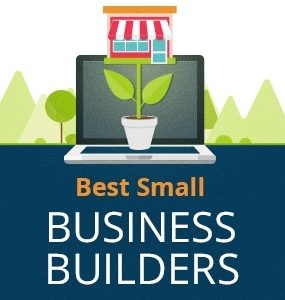
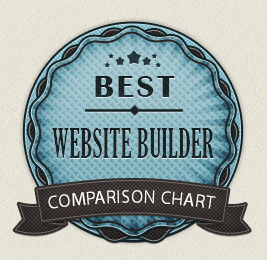

Leave a comment